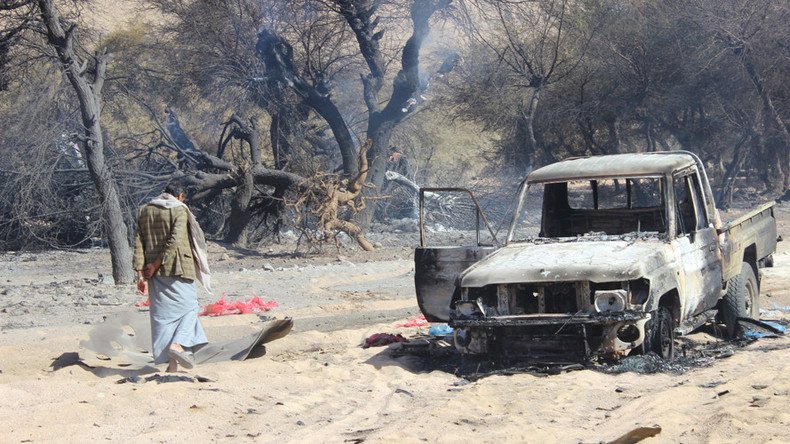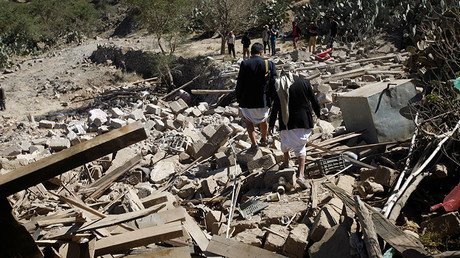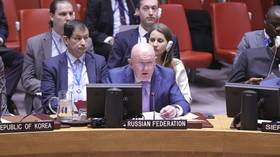Ending arms trade with Saudi Arabia carries serious political risks, court told

Halting Britain’s multi-billion pound arms trade with Saudi Arabia would have serious political ramifications, the UK government has told a London court.
In a landmark judicial review, which has the potential to derail weapons sales from the UK to the Gulf State, the Campaign Against Arms Trade (CAAT) is arguing the exports are not compatible with UK and EU legislation, because they have been used to illegally kill Yemeni civilians.
The High Court case follows a call from campaign groups, led by CAAT, for the UK secretary of state for international trade to suspend all extant licenses and stop issuing further arms export licenses to Saudi Arabia while a full review takes place.
It is estimated the UK government has licensed more than £3.3 billion (US$4.1 billion) of arms sales to Saudi Arabia since its Yemen offensive began in March 2015, which has seen 11,000 Yemeni civilians killed.
Britain has supplied fighter jets, bombs and missiles to Saudi Arabia, and provided training to Saudi pilots participating in the war. It has also admitted to exporting 500 cluster bombs to Saudi Arabia in the 1980s.
James Eadie QC, acting for the government, says it should not have to “set [itself] up as auditors of armed conflict by friendly governments” when deciding whether there was a risk those governments might use British weapons to break the law in the future.
“If you refuse to allow exports you interfere with the interests – if not rights – of those who wish to export their goods,” Eadie said, according to the Guardian.
Such a decision would also “create some risk that you may affect diplomatic relations with that country.”
Judicial review UK govt decision to keep arming Saudi Arabia on Tuesday. @CAATuk Documents & Legal Team here. #Yemenhttps://t.co/dQR6Le01yS
— Clare Maloney (@claremaloney01) February 5, 2017
Documents disclosed during the hearing on Tuesday revealed the government refused to stop the sale of bombs to Saudi Arabia after it was privately advised to do so by the top civil servant in charge of weapons export control.
The head of the Government’s Export Control Organization, Edward Bell, told Business Secretary Sajid Javid that, “My gut tells me we should suspend [the weapon sales.]” He told Javid it would be “prudent and cautious to stop selling to the Saudi regime.”
Under UK arms export licensing rules, weapons should not be exported if there is a “clear risk” they will be used to commit “serious violations of international humanitarian law” (IHL) – the rules that govern war.
However, establishing if a particular nation has committed such violations “may be extremely difficult and indeed possibly inappropriate,” Eadie told the court.
“There’s a clear focus there on a country’s attitude,” he said. “Are they acting wantonly? Are they acting deliberately? This is almost impossible to prove without access to the internal military records of another nation.”
In November, the government rejected calls by two parliamentary committees and human rights groups to stop selling arms to Saudi Arabia, arguing that the weapons were not being used in “a serious violation of international humanitarian law.”
Half of the four-day case, which began on Tuesday, is being heard in secret as the government wants to rely on “sensitive material” that it says would damage national security if heard in an open court.
The hearings in the closed court end on Friday.













